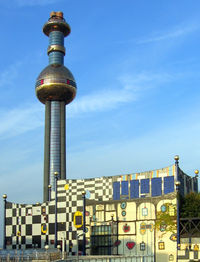
Photo from wikipedia
ABSTRACT This study analyses the health effects of modern heating, using China’s centralized home heating infrastructure as a natural experiment. The underlying health mechanism is that the recipients of modern… Click to show full abstract
ABSTRACT This study analyses the health effects of modern heating, using China’s centralized home heating infrastructure as a natural experiment. The underlying health mechanism is that the recipients of modern heating do not need to rely on traditional fuels to heat their homes and thus suffer from less exposure to indoor air pollution. Furthermore, the improved quality of heating leads to health improvements. This article exploits spatial and time variation in the implementation of China’s centralized heating program, utilizing a difference-in-difference framework. Spatial variation takes the form of a discrete geographical cut-off between regions that receive centralized home heating and those that do not. Results show that areas with centralized heating have a 0.13% decrease in perinatal deaths and a decrease of 1.17% in the proportion of low-birth-weight infants. This translates into about 7000 fewer deaths and about 60,000 fewer low-birth-weight infants each year. Hence, there are enormous health benefits to the public provision of modern heat as a substitute for traditional heating methods, which are shown to be injurious to early-life health. These results strongly suggest that policymakers in developing countries should consider promoting cleaner heating methods.
Journal Title: Applied Economics
Year Published: 2018
Link to full text (if available)
Share on Social Media: Sign Up to like & get
recommendations!